
Why Success Starts
With Self-Awareness
Ep. 595 ft. Amber Fuhriman
“Your actions are all about you, and their responses are all about them.”
Amber Fuhriman
Bio
Amber Fuhriman is an attorney, success strategist, and speaker who helps high achievers create success aligned with self-awareness and authenticity. She is a certified Trainer of Neuro-Linguistic Programming (NLP) and uses mindset and communication tools to help clients overcome perfectionism and fear-based decision-making. Amber hosts the Break Your Bullshit Box* podcast, where she leads honest conversations about leadership, mindset, and the courage to live fully. Her work focuses on helping professionals bridge the gap between external achievement and internal fulfillment. Through her coaching and speaking, Amber empowers others to define success on their own terms and take purposeful action toward it.
Shownotes
Attorney and success strategist Amber Fuhriman joins Lesley for a raw and empowering talk about perfectionism, people-pleasing, and the hidden fear behind our need for clarity. Amber opens up about how achievement became her coping mechanism and how trauma can disguise itself. Together, they unpack toxic positivity, hyper-independence, and what it really means to redefine success on your own terms. You’ll walk away with Amber’s SOS system to ask for help before burnout hits.
If you have any questions about this episode or want to get some of the resources we mentioned, head over to LesleyLogan.co/podcast. If you have any comments or questions about the Be It pod shoot us a message at beit@lesleylogan.co.
And as always, if you’re enjoying the show please share it with someone who you think would enjoy it as well. It is your continued support that will help us continue to help others. Thank you so much! Never miss another show by subscribing at LesleyLogan.co/subscribe.
In this episode you will learn about:
- How people-pleasing can quietly sabotage your goals and boundaries.
- Why success and busyness often mask deeper emotional pain.
- How “seeking clarity” hides perfectionism and fear of making mistakes.
- The real cost of toxic positivity and how to embrace hard emotions.
- How Amber’s SOS system helps you stop overthinking and take action.
Episode References/Links:
- Break Your Bullshit Box Facebook Community – https://www.facebook.com/groups/morethancorporate
- Amber Fuhriman’s Website – https://www.successdevelopmentsolutions.com
- 90-Day Success Jumpstart – https://jumpstart.successdevelopmentsolutions.com
- Rory Vaden’s TED Talk – https://youtu.be/y2X7c9TUQJ8?si=yV69LFYhwgBlc4zY
- Tiny Habits by BJ Fogg – https://a.co/d/0MOylqV
Transcript
Amber Fuhriman 0:00
If you took away our names and our identities and our genders and you looked at just the dots that were important to our identity, we both had a history of suicide in our family. We both lost our dads at the age of 18. We both had siblings that we felt like relied on us. There were these things that were identical to who we were, yet I went to law school and he went to jail. He became a drug addict. He has turned his life around now, and he’s clean and sober, yet people look at him and they say, you’re such a screw up. And people look at me and they say, you’re so successful. What they don’t realize is we were numbing the same thing. Academic accomplishment was my numbing mechanism. If I did enough, if I focused on something else, then I wouldn’t have to feel what I was going through.
—-
INTRODUCTION
Lesley Logan
Welcome to the Be It Till You See It podcast where we talk about taking messy action, knowing that perfect is boring. I’m Lesley Logan, Pilates instructor and fitness business coach. I’ve trained thousands of people around the world and the number one thing I see stopping people from achieving anything is self doubt. My friends, action brings clarity and it’s the antidote to fear. Each week, my guests will bring Bold, Executable, Intrinsic and Targeted steps that you can use to put yourself first and Be It Till You See It. It’s a practice, not a perfect. Let’s get started.
—-
Lesley Logan 1:32
All right, Be It babe, get ready. This interview, we go on the best journey. It’s so good. The Be It Action Item was great. There’s also some really good action steps to take within the interview. Amber Fuhriman is our guest today, and I wanted to have her on because I got to be on her amazing podcast. And I loved her questions so much. I loved her responses. I loved the conversation. I was like, she should be on this show, because if anyone’s been being it it till you see it, it’s her, and we talk about people pleasing and perfectionism and success. And I just think you’re going to have a really great time. I think it’s going to be really eye opening. Pay attention to the SOS thing. I think that’s a killer. And let me know what your takeaways are. I want to hear about it. So here’s Amber Fuhriman.
Lesley Logan 2:10
All right, Be It babe. Get ready. I know this is going to be a great conversation, because I’ve already had the pleasure of meeting this woman on being on her podcast, and we could have gone on for hours. So I just decided, well, let’s just continue the conversation over on my podcast. Amber Fuhriman, can you tell everyone who you are and what you rock at?
Amber Fuhriman 2:27
I’m so excited to be here, and I agree with you. We could have talked forever, and you just meet people. It’s crazy we’re both in Vegas, because I think our response was, how have we not crossed paths? Like, how is two amazing people that it is fantastic not met before now, so I’m so excited. To sum it up, I’m a recovering perfectionist, a people pleaser that is learning how to not people please. I’m an attorney, a, it’s a struggle, man, the struggle bus is big on the people-pleasing train, right? Yeah. I am a attorney, sometimes in recovery, sometimes not. And I do coaching and human behavior and podcasting and all of the things.
Lesley Logan 3:05
Oh my gosh. I think everyone their ears perked up when they heard, oh, you’re a recovering perfectionist and a recovering people-pleaser. like, hi, who are you, like, we’re listening? Because the people-pleasing, looking to start there, it is really hard. And I think it’s like, I think some people don’t even realize they’re people-pleasing. I think that they think they’re being kind.
Amber Fuhriman 3:24
Yeah. I think that’s so true, and I also think we don’t, we’ve never been told to talk about it, because people-pleasing is what we were told we were supposed to be as not even just women. I mean, I do think women have it more than men, but I don’t want to exclude men from the conversation of people-pleasing, but I do think that we as women were told that our job is to be there for other people. We are traditionally put into nurturing roles. I remember being the only female attorney at the criminal defense firm I worked at before I started my business, and we had a really sensitive case, and I remember them coming in and saying, Amber, we need you. We need a woman’s touch. And I said, you, and you asked me, like, have you not met me? Like, I’m so rough around the edges. If you need somebody that can nurture this poor woman, I should be your last choice. I can look at six men that will do a better nurturing job than I will, but there’s this perception that we’re just supposed to take care of other people.
Lesley Logan 4:20
Yeah, yeah. And it’s like, can you, do you know, like, what are, in case people don’t know, what are some signs that they are a people-pleaser? Do you have that off the top of your head, like?
Amber Fuhriman 4:30
Yeah, I think the one that’s coming to my head the most right now is that you care about what somebody else is going to feel about your actions more than you care about what you’re going to feel about your actions. So you go to say something or do something, and the first thought you have is, but what will the other person think? And I am, I want to clarify that there’s zero part of me that’s telling you to go around being an asshole, just for the purposes of being an asshole, but if your authentic self and you speaking your truth and who you are, is going to piss somebody else off, then let them fucking be pissed.
Lesley Logan 5:05
Oh, okay, so here, my mind went so many places, because one of the things that, we coach Pilates studio owners a lot, and so we’re small business owners, and, like, also just in life, go out, and I like talking to small business owners, and it is amazing how many people, like, don’t want to change their policies, don’t want to charge for a late cancelation and won’t raise their rates because they are so concerned with how it’s going to affect the other person that it’s actually affecting their business from making the money it needs to make for them to stay in business. And it’s like to your point, of course, I’m not an asshole who doesn’t care how they feel, and I don’t want to lose them as a client. But also, if I don’t make enough money doing this, when I am working with clients, they are taking a spot from someone who could pay me so that I can actually provide for my family, so I cannot put their feelings so far ahead that I’m actually suffering.
Amber Fuhriman 5:53
Yeah, and I don’t think we think about it that much right, like if I am speaking my truth and I’m being me, and I’m being authentic to who I am, and that upsets somebody, and I think, oh my gosh, I can’t say that, because they’re going to be upset. Are they putting the same thought process into whether they’re asking me to be somebody different than who I am? Right? Why is it that we are the ones that have to adjust and and I know this is going to trigger some people out there, so you’re welcome and I love you, because the reality is one of my favorite sayings is that your actions are all about you, and their responses are all about them. So whenever I have somebody who responds emotionally to something that I’m doing, the first question I ask myself is, were the actions that I took in alignment with who I want to be as a human being. Do I need to adjust something? Are they rightfully upset? Did I act out of alignment with who I am? If I did, then I have some apologies to make. I have some internal work to do. I have some questions to ask, but if I can look back and say I am 100% congruent with the actions that I took, and yes, I want to repair this relationship, and I will be there for you when you’re ready to have a conversation, but I will not apologize when I am 100% in alignment with my actions. This is a conversation you get to understand and accept me for who I am, or don’t accept me, and it is a beautiful place to get to, but it’s not easy.
Lesley Logan 7:17
Yeah, thank you for clarifying, like how you can self-reflect, to just address and also double check what you’re doing. Because I think especially if you are trying to not people-please as much, you’re going to need that set of tools to help you get there, because you’re going to have people who get pissed off. The first people who get pissed off are your close family and friends who will get that’s who you’re people-pleasing for so many years are not going to like when you start acting different.
Amber Fuhriman 7:43
Yeah and I think family and friends is the hardest, because they’re going to support you the least by nature, which is not all their fault. It’s human behavior, right? We exist. So for the people that are listening, there’s this term that I love in NLP, called perception is projection. And basically what that means is we project all of the things about ourselves out onto the world. So everybody that we come in contact with is meant to teach us a lesson, positive or constructive about ourselves, right? So we can only see the world as we are. So when we start making positive changes in our life, when we start becoming the next version of who we are. We are fucking with the perception that our friends and family have held of us for a really long time, and that messes with their identity, because now they’re faced with, do I level up or do I stay and leveling up takes courage and getting out of a comfort zone and something that not everybody’s ready to do. So when they’re faced with that choice, sometimes it’s easier for them to try to convince you not to change than it is for them to face their own bullshit of whether or not they’re going to be willing to join you.
Lesley Logan 8:54
Oh my gosh. Everyone rewind. Hear that one more time. It was so good. It’s so good. We can keep going on this path. But I also wanted to say, like, maybe let’s go on a journey with you. You like, have you always wanted to be a coach? Did you always want to, like, dive into helping people with success and things like that? Or was like being an attorney, like the thing you wanted to do? Like, what’s the journey that got you to where you are today, podcasting and helping people like you do?
Amber Fuhriman 9:18
Yeah, the answer is neither. So I will say that going to law school was a trauma response for me, and because it was a trauma response, the question I hated the most was, what made you decide to go to law school, or why did you go to law school? Because I never had an answer. For me, I grew up in, I was born in the ’80s, grew up in the late ’80s, early ’90s. So I say that because that period of time, for those of us who were raised there, we were taught that we put in enough hard work and there was this level of payout that’s gonna come at the end, right?.
Lesley Logan 9:50
Oh yes, yes, you work hard and you’re going to get rewarded, also.
Amber Fuhriman 9:54
Hard work pays off, I fucking hate that phrase.
Lesley Logan 9:56
If you add that, if you add a layer of religion in there, the same thing, like, there’s a lot of gold at the end of all of this for the people who do everything perfectly right, and work harder than yesterday. And you know what? Also, also, you should do 110% at work just to prove that you deserve the paycheck you’re getting, and then be happy that they didn’t fire you and not give you, like, like, all these different things. But anyways, keep going.
Amber Fuhriman 10:24
Yeah, yeah, no. So, so you get it. And then the second part of what I’m about to share is the reality that we often say what it is we want to have, but we don’t articulate the reason those things are important to us. And so we never understand and get to make the connection of whether what we think we want is actually going to bring the payout that we think it’s going to bring. So let me bring this down a little bit for you. So I grew up in the world where money equaled success, success equaled happiness, and I was in so much pain. So I talk about this in my book, when I decided to go to therapy in 2016 and decided is an overstatement, when I was suffering from panic attacks and had no choice but to go to therapy because I couldn’t breathe, in 2016 it was the first time I had ever heard the term abandonment disorder. I didn’t know what that meant. And then I started looking back at my life, and I started experiencing death for the first time at the age of seven. My cousin, I had two suicides in my family before the age of 14. My dad died when I was 18. Like our brains don’t comprehend that somebody died. They just comprehend that somebody’s gone, right? So for me, I was just so used to people leaving me that it created this belief that people aren’t going to stick around, and I’ve got to be super hyper independent, along with that, after my dad passed away, when I went to a grief counselor for the first time, the first thing they did was try to put me on antidepressants. And I never wanted to be medicated, so in my brain, that connected if I talk to anybody about not being okay, they’re going to medicate me, and I don’t want that, so I just pretended I was good, until I couldn’t pretend anymore. After my dad passed away, I failed out of undergrad. I was the first person in my family to go to college. I really struggled with this idea of grief and success at the same time. So when I was at my rock bottom, I thought, something’s got to change. I’ve always loved legal thrillers. I fell into the trap of thinking that life as an attorney was a John Grisham book, which it is, sadly not. My dad and I talked about me going to going to law school. He thought I’d really like it. He was no longer here, so it was kind of a connection to him. But most importantly, it’s the only way I knew to make six figures, and that money equals success. Success equals happiness. Happy people don’t feel pain. So in 2016 after I’d gone to law school, I’d made my first six figure income. I had the respect in my profession, and I still hurt. I didn’t know how to breathe, and that’s when my panic attacks started. It was learning the human behavior behind choices, healing from my own choices, uncovering and dealing with the masks that I put on throughout my whole life as I saw the benefits of that. That’s when coaching kind of opened its doors to me.
Lesley Logan 13:22
Wow, thank you for that whole journey. And I think I can, I don’t, I don’t have, I didn’t have the grief part of it in my childhood, but I definitely had the hyper independence, like, you know, I, I, there’s pictures of me as a little girl, like, making my own breakfast, because my dad was, like, very into, like, build a bit, like, you have to be able to take care of yourself. And like, so like, as a three year old, like, the bowl of cereal was poured and the milk was in the fridge, and I had to grab the milk from the fridge, it’s already poured in a cup for me to fill my bowl. And, like, I love the independence it taught, but also, layered with that whole, and my parents for good reason, like, they live in a small town. They do not have money. So if they’re like, if you want to have a life that’s not like this, you have to go to college, because college is going to guarantee a paycheck.
Amber Fuhriman 14:12
It’s so comical now, right?
Lesley Logan 14:13
It guaranteed a lot of student loans. I’m glad, of course, I’m glad I went. I would not be here today had I not gone on that journey, because I don’t believe anything happens without happening for us, but because I’m but I did laugh as like in the 2008 recession, when I was a full time Pilates instructor that is not why I went to school for, and I was like, well, this $700 month student loan bill sucks, but I wouldn’t have found a Pilates had I not been there. So, like, all these different things happen for the way they go. But it took me a really long time, and I’m still learning today, it’s probably the thing, the hardest thing I’ll ever have to learn is like, I cannot do it all alone. So I’m constantly thanking my team. I’m constantly thinking, my team. I have to remind myself, my team. And then when things go wrong, I have to the my first reaction is like, I could have done it better, and I have to go, no, I could have explained it better. I could have, maybe I could reflect back and see where I could have checked things more. I could have. But, like, I that hyper independence is a really hard thing, I think for a lot of women, because what they do is they just do everything themselves, and then they’re burnt out and they’re pissed off, and they’are resentful.
Amber Fuhriman 15:19
Yeah. Yeah. And I think so when you say I could have done it better, you’re saying you could have done it better than the team or better than.
Lesley Logan 15:26
Myself. I could have done it better myself.
Amber Fuhriman 15:27
You could have done it better yourself.
Lesley Logan 15:28
Yeah, which is not true, because I can’t even do, I can’t even like, do technology myself, so.
Amber Fuhriman 15:34
Right. And I fall into that often. And the reason I asked for clarification was because I wanted to make sure I understood what you meant. And maybe we could have, right, done it better, but we can do it better once, and then they get to be better at it by doing it over and over again. But I think more importantly, have you ever heard Rory Vaden’s TED Talk, Procrastinate on Purpose?
Lesley Logan 15:56
Yes, yes.
Amber Fuhriman 15:57
Oh my gosh. I love this so much. And one of the things that he says in there that really sticks with me is by saying yes to one thing, you’re saying no to an infinite amount of other things that you don’t even know yet. So when we say I could have done that thing better, maybe that’s true, but what is the thing that we actually did better that we wouldn’t have been able to do had we focused on that thing that we might have done better? Right?
Lesley Logan 16:20
Yeah, yeah. I think that’s so good. And I think, like, we, I, we all have our things that we are overcoming. And like, it’ll think you, you’re in the coaching world, so, like, maybe you can address this. I think the perfectionist in us, and in all the people listening, is that, like, we should get over it. And I’ve determined, or come to some comfort thinking that, like, nothing you’re ever over it, you just get quicker at identifying that you’re in it and that you have to deal with it.
Amber Fuhriman 16:49
What is it, the perfectionism?
Lesley Logan 16:51
The perfectionism or the thing that you’re like, whatever your whatever your trigger is, so like, the hyper independence, or the people-pleasing, or it’s not that you’re like, you just like, overcome it and it’s behind you and you’ll never do it again. It’s like, I think that, like, it still comes up in different levels or different ways, and you have to go, oh, I recognize it a little sooner. Like, instead of it taking days for me to get over it, like, whatever it is, like, I it takes me an hour, or takes me five minutes, I go, oh, that’s me falling into that trap again.
Amber Fuhriman 17:20
Yeah, I think it’s so important to focus on that, because one of the things that we do in our trainings is we help people with some emotion-related conversations, which is basically every conversation we’re ever going to have in life. So when we think about some of these perfectionism and people-pleasing and even overthinking or lack of delegation, or whatever the behavior is, usually that is tied to some emotional response that’s usually tied to anger, sadness, fear, hurt or guilt, which are five major emotions. Normally when we’re talking about what, what the purpose is of these behaviors, we can tie it back to one of those five emotions. So as we do the emotion work, the behaviors start to shift, and one of the biggest ones is fear, right? I’ll ask people, what’s the purpose of not delegating? Well, I’m afraid it won’t get done as good if I do it, or I’m afraid like somebody will see it and it won’t be mine, and then that’ll trigger this imposter, or whatever it is, right? So when we’re talking about this, understanding what we’re actually feeling when we experience those behaviors is so incredibly important, so we can deal with those emotions, but I think also being able to tap into what the purpose of those behaviors are. So whenever somebody that I’m working with has a behavior like perfectionism or lack of delegation, or whatever the it is, I’ll ask them, what’s the purpose of this? And they’re like, well, it doesn’t serve a purpose. And my response is always, it must, or else you wouldn’t do it, because every behavior has an intention. So what is it that you’re gaining or avoiding by doing these behaviors, because that’s where the real work is done.
Lesley Logan 19:03
This, as a habits coach that’s the same thing, like BJ Fogg, who I study with, he said there’s no such thing as a bad habit, because every habit serves you. If you don’t like a habit that you have, that’s okay, but there’s no there’s they’re not good or bad. It’s just, like they all either they’re providing certainty or safety or there’s a actual positive feeling you’re getting from it in your brain, even if you don’t like that you do. If you don’t like that, you scroll. There’s something that you’re getting that’s a dopamine hit that your brain is like, this makes me feel good. Now, to unravel that, we have to figure out what the prompt is, and we have to figure out, you know, how do we get that same, a similar feeling with something else that you actually do want? But I, thank you for (inaudible) that journey. Can I ask, like, I think, like something that stuck out, and we don’t have to talk about this, if you don’t want to, but like, you mentioned that like going to law school is like a trauma response. I feel like most people wouldn’t think that like going and taking yourself to school would be a trauma response. I guess I’m wondering, like, what are, what are some trauma responses that people might not realize that, like, that’s a trauma response they’d be doing. Like, can we talk a little about trauma responses?
Amber Fuhriman 20:06
Yeah, absolutely. And I’m an open book, so I will go anywhere you want to go. So let me give an example. This is when I started to realize that it was kind of a trauma response. I have a really good friend of mine that I did a podcast interview with about four years ago, when I first, first started my podcast, he’s one of the first people that I met in the personal development space, and one of the reasons we connected is because we had so many similarities in our life. So if you took away our names and our identities and our genders, and you looked at just the dots that were important to our identity, we both had a history of suicide in our family. We both lost our dads at the age of 18. We both had siblings that we felt like relied on us. There were these things that were identical to who we were, yet I went to law school and he went to jail. He became a drug addict. He has turned his life around now, and he’s clean and sober, yet people look at him and they say you’re such a screw up, and people look at me and they say you’re so successful. What they don’t realize is we were numbing the same thing. Academic accomplishment was my numbing mechanism. If I did enough, if I focused on something else, then I wouldn’t have to feel what I was going through. And I think that we fall into this trap of thinking that because our and I’m really careful when I compare this, because our addiction is socially acceptable. We convince ourselves that it’s healthy, right? But it’s not. We’re still numbing. If you’re I mean, obstacle course racing that I did for a really long time was a numbing mechanism for me when law school didn’t work. At some point in time, we get to feel the feels. At some point in time, we get to just be human and be enough without feeling like we need to be or do or become something more when we feel that way, when we feel like I am enough right now, then the things that we want to do and become become additional exciting opportunities for us, instead of the thing that is going to fix us or heal us. And I think that’s the difference. So when we, when I look at law school as a trauma response, the only reason I can say that it was one is because I didn’t go to law school because I wanted to go to law school. I went to law school because it was supposed to fix or stop the pain of something, and anytime we do one thing because it’s supposed to make us not hurt, I think that there’s some trauma in there, and that doesn’t mean it’s a bad thing. It just means that we get to take it for what it is.
Lesley Logan 22:46
Yeah, I think, my yoga teacher was I interviewed on my podcast, and his he was talking about, like, everyone’s label things as good and or and bad. And he’s like, that’s just not really how it works. He’s like, you can’t have happiness without sadness. You can’t, like, all these things have to exist for you to feel happy. You have to have felt pain. Like, that’s the only way you can do it, which I think is really interesting, that we were taught like, success equals happiness and happy people don’t feel pain. That’s not true. But he also said, like, you know, in our society, we tend to think, oh, someone who drinks wine at the end of the night is numbing, and that’s bad. But actually, like, there’s been a lot of people who have even said like Mindy Pells, he said it there’s someone else who’s like, if that glass of wine helps you relax after a hard day and allows you to connect with your family, allows you to talk to them and to be fun, it might not be bad. Now, if it’s you’re doing it every night, too numb from the pain of work and also ignore your family, then it’s not really serving you. Then it’s so like, we do have responses to things, and as long as we’re evaluating like, how is this actually serving us? Is it serving us? Is it actually serving the people that we say we love? Then we can’t we need to stop being so hard on ourselves about some of the things that we’re doing and that some things that we might not deem healthy aren’t really healthy. Because I actually really liked that you told that story. You know, I have a real, after living in L.A. and living around unhoused people for as long as I did, just it’s really, it’s like nails on a chalkboard when someone says that they’re lazy, why don’t they go get help? Why don’t they use resources? And it’s just like we have no idea what their life was that led them here. Most people who are mentally healthy do not choose to live on the streets. You know, like, most people.
Amber Fuhriman 24:27
And only that, like, I love that we went here, and I’m gonna piss some people off here in just a minute. So remember, you love me. I just did a keynote in Nashville in March, and my keynote is, every victim needs a villain, and it’s so easy for us to look at people who live on the street as being a victim and be the person that’s like, why don’t you do this, or, why don’t you do this? What about the person that wakes up pissed off at their job every single day and doesn’t take control of their life? What about the person that wakes up and doesn’t run their business the way that they want to do or that they could in order to make more money? What about the person that wakes up without good relationships with their family and then allows those relationships to destroy them inside? Because they have a roof over their head, doesn’t mean that they’re any less of a victim than anybody else. So we get to sit back and say, yeah, it’s really easy for us to sit here and judge this type of victim, because we can look at them and we can identify that they are not societally acceptable. But your type of victim, whatever it is you’re a victim of, because I promise you, every single person is a victim of something. It’s a lot less easy for us to look internally and say what am I not taking control of in my own life?
Lesley Logan 25:40
Yeah, Gosh, what a great TED Talk. And also, like, I think, like, what came to my mind is, like, a lot of people are like, well, my problems aren’t as bad as so it’s not that big a deal.
Amber Fuhriman 25:50
And that works double sorted wise, right? Yeah, because, number one, my problems aren’t as bad as this, so I don’t need to deal with them. It’s really unfortunate because the person who is living unhoused didn’t wake up one day and live unhoused. There were not that bad problems that started it right. But second of all, the other side of that is when it comes time to become something great we also use that to say, well, my life didn’t have the transforming moments because my problems weren’t that bad, so I don’t have anything to share with the world. So we get to just stop comparing ourselves in general, and say there’s this thing that I don’t like about what’s going on right now, and regardless of whether somebody else has it worse, I still get to deal with this thing. And I want to tangent just a little bit, because you mentioned something earlier that I want to make sure that we dig into, which is the success happiness thing and it’s toxic.
Lesley Logan 26:46
You’re reading my mind. Yeah, we’re going here next.
Amber Fuhriman 26:50
Toxic happiness and toxic positivity culture that some people live in, like I absolutely despise affirmations, the way that they are traditionally taught, which is stand in front of a mirror and tell yourself you’re pretty until you believe it. Because this fake it till you make it mentality doesn’t work. And if I don’t think that I have self-worth, and I don’t think I’m pretty, and I don’t think like that I’m capable of whatever, then standing in front of a mirror and lying to myself about it isn’t going to do a goddamn thing, except for convince myself I’m a liar, right, right?
Lesley Logan 27:21
Well, the brain doesn’t like distance, so you can’t, that’s why this is not called fake it till you make it, right, like, that’s.
Amber Fuhriman 27:26
Yeah, which I love. I love. So we get to pay attention to what that voice is. When you stand in front of a mirror and you say, I can have a seven figure business. I can have an eight figure business. What does that voice tell you? Because instead of just telling that voice it’s wrong. We get to understand where does that voice’s beliefs come from, and heal whatever that is that makes us believe that. So, and I’m not saying like so, the best way that I’ve ever seen affirmations done is to say this is who this is what I want to accomplish. This is who I need to be in order to accomplish it, and this is who I think I am now, so that you can see the gap between them to become it, and then your affirmations become things about yourself that you are in control of, that you are committed to being in order to level up to that next step of your life. So that’s the first side. The other side is this toxic positivity and happiness. Like, if somebody else looks at me and says just think happy thoughts. I’m going to shove them through a glass window. Like, so I want people to hear this, because especially in the clickbait side of personal development, there’s like, just feel better about yourself. Yeah, that’s great. Like, thanks for the million dollar advice.
Lesley Logan 28:38
It’s like when someone says, well, you know, calm down. It’s like the same, the same visceral response happens, I think, like, there, as we know, as you and I know, on the other side of things, yes, you can always look back on a rear view mirror and go, that shitty situation was a great thing to help me pivot. But while you’re in the shitty situation, what you don’t need to hear is just think happy thoughts. This is going to be great, like this is no no one needs to hear that from you. They can come up with that themselves, but at first they do have to feel the feelings of the shitty situation.
Amber Fuhriman 29:16
Yeah and when I hear that, so the one for me that really resonates, and the reason I laughed is because when I was suffering from panic attacks, I would love it when people would say, Amber, just breathe. And I’m like, have you ever had a panic attack? I’m telling you, that’s what I’m not capable of doing right now. Like, I would love to just breathe. You make it sound so simple. I like it takes every thought that I have in every ounce of focus to get air in my lungs right now. So just breathing doesn’t seem as easy as you make it sound, but I think the other side of this just think happy thoughts, comment that you made is it makes us feel like we’re doing something wrong, or that we are wrong because we’re not okay. And it is okay to not be okay, it’s just not okay to stay not okay, right? I got a. Water bottle at a conference I went to once that said nobody drowned by falling in the water. They drowned by staying there. So like we get to acknowledge like I’m not okay right now, how long am I going to allow myself to not be okay, and where do I need to be and who do I need to be around in order to be okay? So in this, in this vein, I encourage all of my clients to create an SOS list. And I actually encourage them, if they have an iPhone, to go into their text replacement and come up with an SOS phrase and replace SOS with their SOS phrase. So for example, mine is, I’m stuck at the airport because my so my SOS moments are normally overthinking. And I remember talking to a good friend of mine, and I was venting about what direction I was going to take my business. And I was tired of constantly feeling like I was having the same conversations about growth and not taking action and all the bullshit. And I said you know what I feel like? I said, I feel like I’m stuck at the airport. And she says what do you mean by that? And I said, I feel like somebody has given me an all expense golden ticket, paid vacation to anywhere that I want to go in the world. All I have to do is pick the plane that I’m going to get on. But instead of actually choosing a plane, I’m standing in front of the departures board looking at which one that I want to do, over analyzing every decision, and then I become Tom Hanks living in an airport, right? So for me, any choice I made would be a better choice than what I’m doing right now, but I’m so overthinking it that I can’t express what I want. So I think that what’s important is when we’re in those moments we are sometimes so in our thoughts that we don’t know how to ask for help. So if you have that close knit group of friends that you can say you are on my SOS list. If I text you and say I’m stuck at an airport, I am in my shit. So whatever your phrase is, what you’ll find, and what’s beautiful is that the moment you send that message, your brain knows that it’s okay and you will normally have the answers that you’re looking for before they even call you back. It’s that decision to ask for help that allows your brain to say, okay, now I can see solutions. So if you if you find yourself in those places, pick two or three people, reach out to them, get their permission, I’m going to put you on what’s called My SOS list. This is my SOS phrase. This is what it means to me. If I ever send this to you, it just means that in that moment, I really need somebody to check on me because I don’t know how to ask for help.
Lesley Logan 32:32
Oh, my god, that is so good. And I love that so much, because it makes me think of like Brené Brown said, like, I have five people. I have a name of five people in my life whose opinions of me matter, and they know that their opinions may matter, and if I have bad feedback or something comes up, I look at that list and it’s like, okay, well, they’re they’re not my five person list. So who are they? So it makes me think of that. It’s like having these lists of people that can help us, because it is, it is hard to fall in the water, not judge yourself for falling in the water, not get frustrated that you’re back in the water and then, and then you’re like, okay, I get to feel my feelings, and then somehow it gets becomes a habit, and you’re still in the water, right? Like, so I really do like that like, we get to fall in the water, we can actually feel these feelings, and then when we’re ready to get up and ask, like, we have a way of asking for help, which isn’t like, I need help right now, because that is so the recovering perfectionist in the world, like that is like you that’s like a that’s a four letter word is I need (inaudible).
Amber Fuhriman 33:30
Yes. Well, because a lot of this perfectionist thing comes from, you know, everybody’s different, so I hate lumping behavioral traits into this is where they come from, but I’ve seen some trends, and a lot of it comes from believing that we had to be something in order to be valued and loved and worthy of connection, right? That just ourselves wasn’t, so if we are imperfect, that means that we’re unlovable, and I find that there’s a lot of that connection between perfection end. And then the other thing that I love right now is the word clarity, that, because I see that everywhere, and I remember my coach telling me.
Lesley Logan 34:10
(inaudible) having an authentic moment, clarity is.
Amber Fuhriman 34:12
Yeah, yeah. Like my coach kept saying, so when are you going to take action? And I said, I just need some clarity. Just need some clarity. And I didn’t realize how much I said it, and I’ll never forget her telling me, Amber, you realize clarity is just the word perfectionist used to not use the word perfection. I’m like, I hate you right now, and I love you.
Lesley Logan 34:29
I have a coach who said certainty is perfection in disguise. I’m like, fuck you. You’re right. Like, like, I need it.
Amber Fuhriman 34:39
I hate it when you’re right.
Lesley Logan 34:41
Yeah. You’re like, I know that. I knew that.
Amber Fuhriman 34:44
So, there’s this, there’s this video. This is what I feel like when I talk to my coach sometimes, there’s this video of a little boy. I’ll have to send it to you, and you can put it in the show notes. It’s hilarious. A little boy, and you know those slides that we grew up with, like, not the safe ones that kids have today, but the metal ones that you were either going to burn your ass on when you go down, or you were going to end up bruised because you went so fast that you hit the gravel. Yeah, we didn’t have those soft, padded, black, safe surfaces that kids get now. So I was watching a video of this little, maybe six year old boy, and he’s walking towards this death slide that we grew up with, and he’s carrying a blue toboggan behind him, and you can see that in his little six year old boy brain, he’s going to climb up the stairs of the slide and ride the toboggan down this metal death slide. And his mom’s videoing, and I love this so much, because his mom says, if you’re going to be stupid, you better be tough. And his response is, I know you told me that lots of days. And so like I feel like every single time my coach says something to me that makes sense, I’m like, you tell me this all the time. I know I’m still going to take my blue toboggan up my death slide and figure out how this works in my own damn choices. And then you and I are going to figure out how to fix the outcome, right?
Lesley Logan 36:07
Oh, my god, please send it. We have to link it. And also it’s, it’s, well, I mean, so as applied instructor, I was teaching someone in my group who’s in my mentorship program who’s trying to up level her teaching, and I was giving her some breakfast, like, I know, but like, I should be able to do it by now. And I’m like, okay, hold on. Like, I know that you know what the exercise is supposed to look like. I know that you’ve been doing this for years, and you, your body has been able to cheat its way through this. And I also know that you signed up to no longer do that. The problem is that your body wants to do the easiest thing, because it’s just that’s it’s trained to conserve calories. It’s literally trained to conserve calories. So we know that the new way, the better way, the more the stronger way, the more connected way is better. But to rewire our brain to do it that way, to do it that way is going to take more calories. So our body wants to do the easiest way. And I think, like us, you know, use clarity or certainty or have these other the perfectionist person of us is like, okay, I’m not. I’m going to work on being imperfect. And then our brain’s like, oh, look at this thing over here. This is a great way to, like, hide out and take notice, because it’s harder, it’s more calorie-consuming. It’s more awareness. It requires more thought to actually not like, to actually live in that imperfect place, and like be willing to make a mistake or be willing to get on the wrong flight, or be it requires more calories. So our brains and bodies are very good at sneaking around and taking shortcuts.
Amber Fuhriman 37:41
Yeah, I love it. And one of the things that’s coming to my mind right now, and I think I’m going to go do this. I’ve never done it before, and I think I’m going to, and I would encourage some of your listeners to do it and let me know how it goes. I want to leave my house without a plan one day, and I just want to, like, find out where I end up. And maybe, since we’re both in Vegas, we can leave our houses without a plan together and just figure out what choices present themselves to us and where we end up when we don’t have a expectation of how our day is going to turn out.
Lesley Logan 38:12
Okay, we’re, we’re setting a date to do this. I have three months in town, so let’s set a date where we do this, and then, and then we’ll have a date the next day to talk about it.
Amber Fuhriman 38:21
To talk about it, right, like, what opportunities do we miss? And I’m not telling people they shouldn’t plan like my my schedule is like, completely planned out because it’s important to but I also think that every now and then we need days where we just figure out where we would end up if we didn’t have expectations about what the day would look like, what would we say yes to, and what opportunities do we miss when we’re so focused on something else?
Lesley Logan 38:46
Because, I mean, like when we go on vacation, some people can’t have a vacation day that’s not over planned. My husband, I went on vacation earlier this year after our big tour. Our tour was 8000 miles, like 22 cities, 47 events. Like every day is planned out. Otherwise we don’t make it on the tour on time. So we have a vacation that’s planned after every tour. And I took him to this hotel I love, and we literally laid by the pool, and I got so I read two books, and I got so bored. I was okay, I’m really bored now. It’d be a good time for us to, like, do something else. And he’s like, what do you want to do? I’m like, I don’t know. Why don’t we just drive into town and see what we see. And like, had the best time wandering around a town, you know. But like, like, we do this when we’re on vacations, ideally, you relax and you have but like, we don’t ever do it like, on a on a day that normally we planned out or in our own towns. It makes me think of artist dates I’m in. I love it.
Amber Fuhriman 39:35
Yeah, let’s do it. I also want to share for those of like, because we’ve talked so much about perfection, I love, and I would encourage, if your listeners are artistic, they can they can do this, or they can go, like, find a picture on the internet. But whenever a friend of mine or a client of mine talks to me about perfection, I’ll ask them to introduce me to their unicorn, and they’ll be like, what are you talking about? And I said, Well, if we’re gonna talk talk about things that don’t exist, then we might as well talk about unicorns, right? So, like, just think about, like, we would never say, I can’t go do something today because I have to take care of my unicorn. Everybody would be like, that is out, like, that’s so dumb. Like, unicorns don’t exist. Exactly, exactly, my friend.
Lesley Logan 40:20
Okay, I have one more question, because I would love, I mean, I get, I feel like I get this asked all the time, and we brought up success, enough like, how, how do you define success now? Because I’m assuming it’s changed since it’s no longer get rich to be happy and not feel pain.
Amber Fuhriman 40:38
Yes, it has absolutely changed. Yeah, freedom, which I know really isn’t a definition. I love when people define words with other non-definable words. So I’ll go a little bit deeper on that. For me, I love knowing that if I wanted to pick up and go to Nashville for a month, I can pick up and go to Nashville for a month if I have a friend who needs me, or if my family needs me, I my uncle passed away, or, I’m sorry, my cousin passed away in August, and I was able to just go stay with my aunt for I call him my uncle. This is why it’s so hard. They’re so much older than me. But either way, I was supposed I was able to go stay with his wife for a little bit and not have to worry about work, because I could travel so location, freedom and independence is so incredibly important to me, and then feeling like I’m in control, you know, not necessarily not having responsibilities. One of my coaches quotes that I steal from her all the time, so I’ll give her credit, is choices of powerful things, suffering is always optional. So when I step back and I say, whatever happened today, I was in complete control of my choices in how I spent my day. So if I am not happy with the way my time was spent, then I get to look at my choices to determine how I’m going to avoid repeating that again in the future, where did I spend time that I didn’t want to spend time? So time and location freedom is my definition of success right now.
Lesley Logan 42:08
I do love that. I do love that. Okay, well, we could obviously talk for hours. We’re gonna take a brief break, and then we’re gonna find out how people can find you, follow you, work with you.
Amber Fuhriman 42:15
Sounds good.
Lesley Logan 42:16
All right, Amber, where’d you like to hang out? Where are all the places people can hear your amazing words of wisdom more.
Amber Fuhriman 42:24
So first of all, the I have a free Facebook group, which we are revitalizing. It’s been pretty dormant for a while, and I’m committed to changing that. So if you want to be a part of that revitalization, called the Break Your Bullshit Box Community on Facebook, so you can go check that out there, other than that, socials and the book and all of that stuff is on my website, at successdevelopmentsolutions.com.
Lesley Logan 42:49
Amazing, amazing. Okay, you have actually given us so much. There’s a few things I’m like, well, that’s a Be It Action Item. Well, that’s a Be It Action Item. But for the for the bold, executable, intrinsic, targeted steps people can take to be it till they see it, what do you have for us? You can take from what we’ve already gone over, or you can add more.
Amber Fuhriman 43:04
Yeah, so I think the first thing that I would say is, if any of your listeners are interested in taking that next step, I do have an online 90-Day Success Jumpstart Training that starts to get you into some really actionable steps. So if they’re interested in that, they can go to jumpstart.successdevelopmentsolutions.com. The actionable piece that I really want to leave people with is an understanding that you have complete control, like you make decisions every single day, whether you realize you make decisions and if there is anything that you are not 100% happy with in your life, then we get to dig into what decisions you’re making to create that, because avoiding making a decision is still a decision. So what choices are you making? And how can we make different choices? So that’s the actionable piece I would leave them with.
Lesley Logan 43:54
Love, love, love. Amber, so fun. Okay, we have a date to make about our unplanned day, and then also a date just to be in person. You’re wonderful, amazing. You guys, share this with a friend who needs to hear it. Share this with that people pleasing friend who doesn’t realize that they are. They won’t know that we told them to do that until they get to this part. And then, yes, that was for you. And make sure that you share any takeaways with Amber or the Be It Pod. We want to hear from you. We want to hear what your takeaways are. And until next time, you know what to do, Be It Till You See It.
—-
Lesley Logan
That’s all I got for this episode of the Be It Till You See It Podcast. One thing that would help both myself and future listeners is for you to rate the show and leave a review and follow or subscribe for free wherever you listen to your podcast. Also, make sure to introduce yourself over at the @be_it_pod on Instagram. I would love to know more about you. Share this episode with whoever you think needs to hear it. Help us and others BE IT TILL YOU SEE IT. Have an awesome day!
—-
Lesley Logan
‘Be It Till You See It’ is a production of The Bloom Podcast Network. If you want to leave us a message or a question that we might read on another episode, you can text us at +1-310-905-5534 or send a DM on Instagram @be_it_pod.
Brad Crowell
It’s written, filmed and recorded by your host, Lesley Logan and me, Brad Crowell.
Lesley Logan
It is transcribed, produced and edited by the epic team at Disenyo.co.
Brad Crowell
Our theme music is by Ali at APEX Production Music and our branding by designer and artist Gianfranco Cioffi.
Lesley Logan
Special thanks to Melissa Solomon for creating our visuals.
Brad Crowell
Also to Angelina Herico for adding all of our content to our website. And finally to Meridith Root for keeping us all on point and on time.
Pod Social Media
More Episodes
Ep 596: The Truth About People Pleasing and Control (ft. Brad Crowell)
In this recap, Lesley and Brad reflect on their powerful conversation with Amber Fuhriman—attorney, NLP trainer, and host of Break Your Bullshit Box. Together they unpack how perfectionism and pe...
Ep 595: Why Success Starts With Self-Awareness (ft. Amber Fuhriman)
Attorney and success strategist Amber Fuhriman joins Lesley for a raw and empowering talk about perfectionism, people-pleasing, and the hidden fear behind our need for clarity. Amber opens up about...
Ep 594: Now Is the Time to Revisit Your Bucket List (FYF with Lesley Logan)
Lesley Logan is back home with a heartfelt reminder to celebrate every part of the journey — even the messy middle. She shares a clever modern-day safety hack that helps women feel more secure wh...
Ep 593: How Confidence Creates Business Growth (ft. Brad Crowell)
In this recap, Lesley and Brad revisit their inspiring interview with Jill Allen, founder of Jill Allen & Associates and host of Hey Docs. They reflect on the lessons of grit, confidence, and ...
Ep 592: Building a Business That Balances Logic and Heart (ft. Jill Allen)
Lesley Logan chats with Jill Allen, orthodontic consultant, business strategist, and host of the Hey Docs! podcast, about building a thriving business by balancing logic, courage, and heart. Jill s...
Ep 591: Turning a Singapore Layover Into an Exciting Milestone (FYF with Lesley Logan)
It’s Fuck Yeah Friday! Lesley drops affirmations for abundance and well-being that you can use anytime you need to reset your mindset. She celebrates an inspiring win from listener Nancy about fe...
Ep 590: Why Change Feels Hard and How to Fix It (ft. Brad Crowell)
Lesley Logan and Brad Crowell unpack the biggest takeaways from mindset coach Brad Bizjack, diving into what it really takes to create change that lasts. They reveal why perfectionism often hides b...
Ep 589: Stop Stalling Your Success With Surface-Level Mindset Fixes (ft. Brad Bizjack)
Lesley Logan welcomes mindset coach Brad Bizjack for a conversation that digs deep into why so many high-achievers get stuck in surface-level strategies. Brad shares his journey from being buried i...
Ep 588: The One Big Step to Make Habits Stick (FYF with Lesley Logan)
It’s Fuck Yeah Friday, and Lesley is back with wins and wisdom to brighten your week. She shares a surprising story about how time was once measured, highlights an inspiring Pilates win from list...
Ep 587: Why Authenticity Attracts The Right People (ft. Brad Crowell)
Lesley and Brad are back to recap their conversation with Dr. Shanté Cofield, The Movement Maestro. They share how showing up as yourself makes the hard days easier, why boundaries are non-negotia...
Ep 586: Being Anything but Yourself Is Unsustainable (ft. Shanté Cofield)
Dr. Shanté Cofield, better known as The Movement Maestro, unpack what it really takes to build a business and life that actually feels good. From letting go of roles that no longer serve you to em...
Ep 585: Anniversary Reflections: A Decade of Love and Commitment (FYF with Lesley Logan)
Lesley Logan brings you another round of Friday wins to inspire your week. She shares a powerful story of fathers reuniting with daughters, a community win about commitment and accountability, and ...
Join
Stay Current on Podcasts
& Advice!


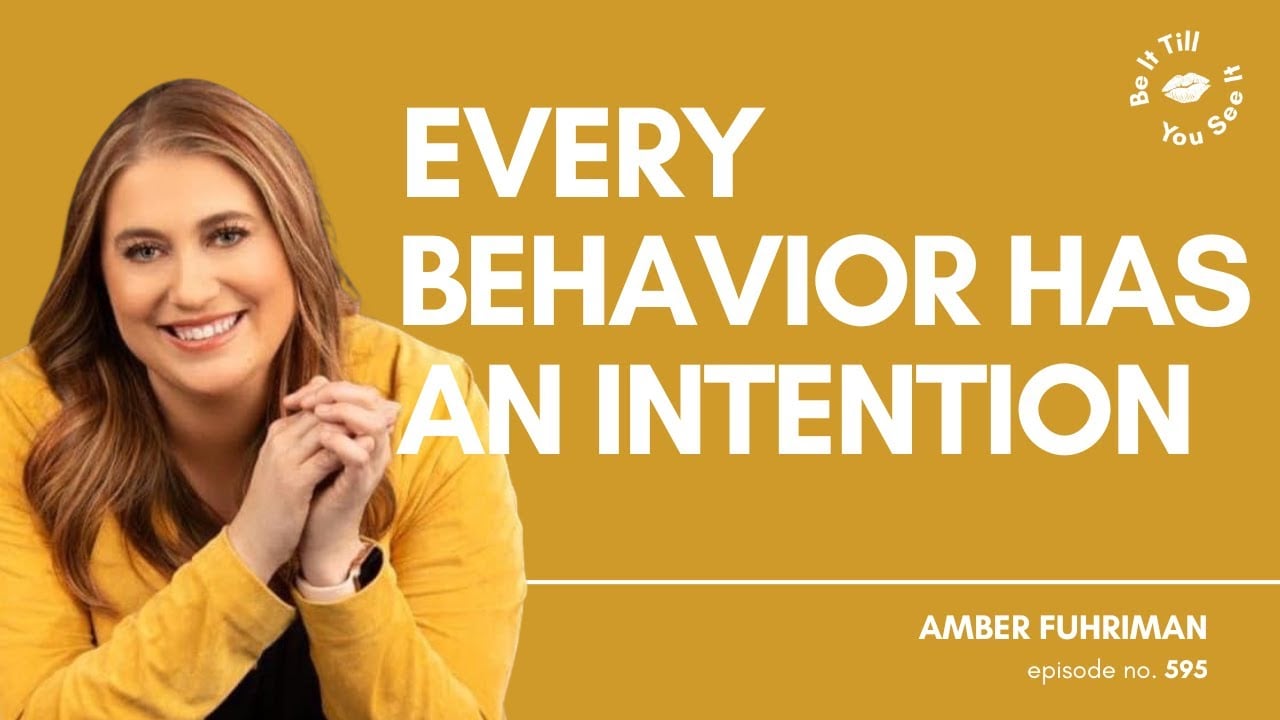


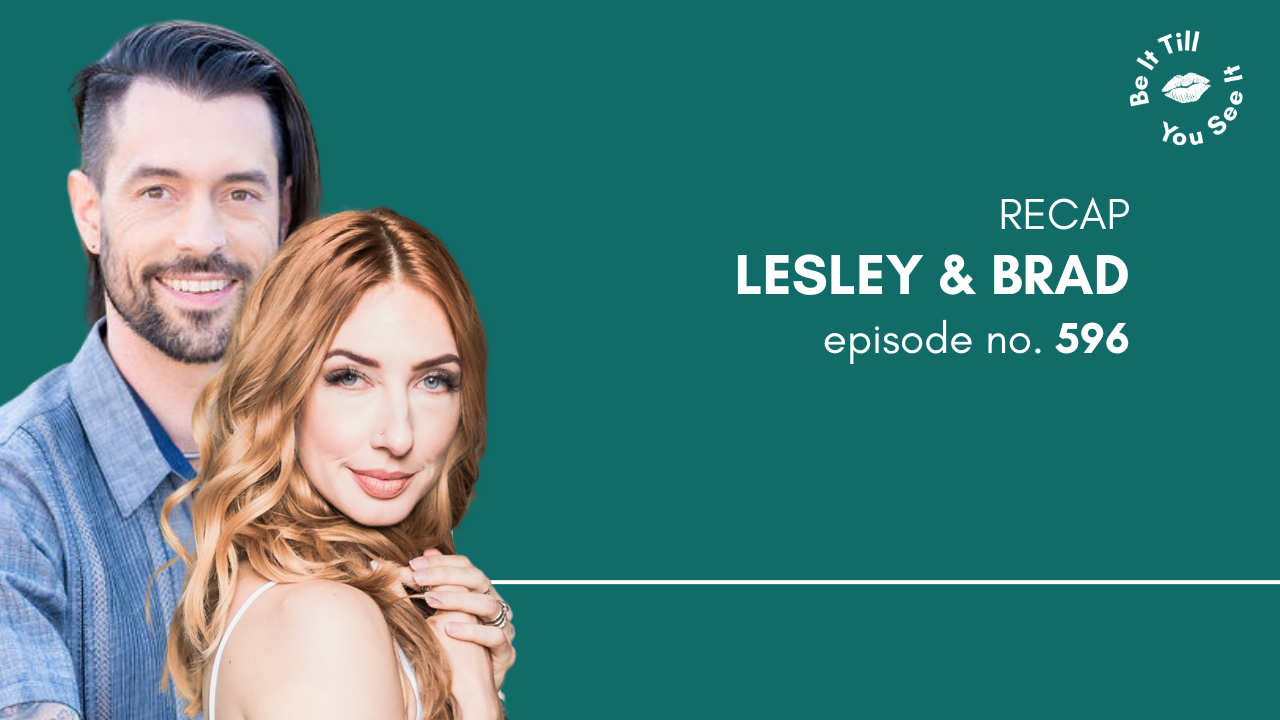
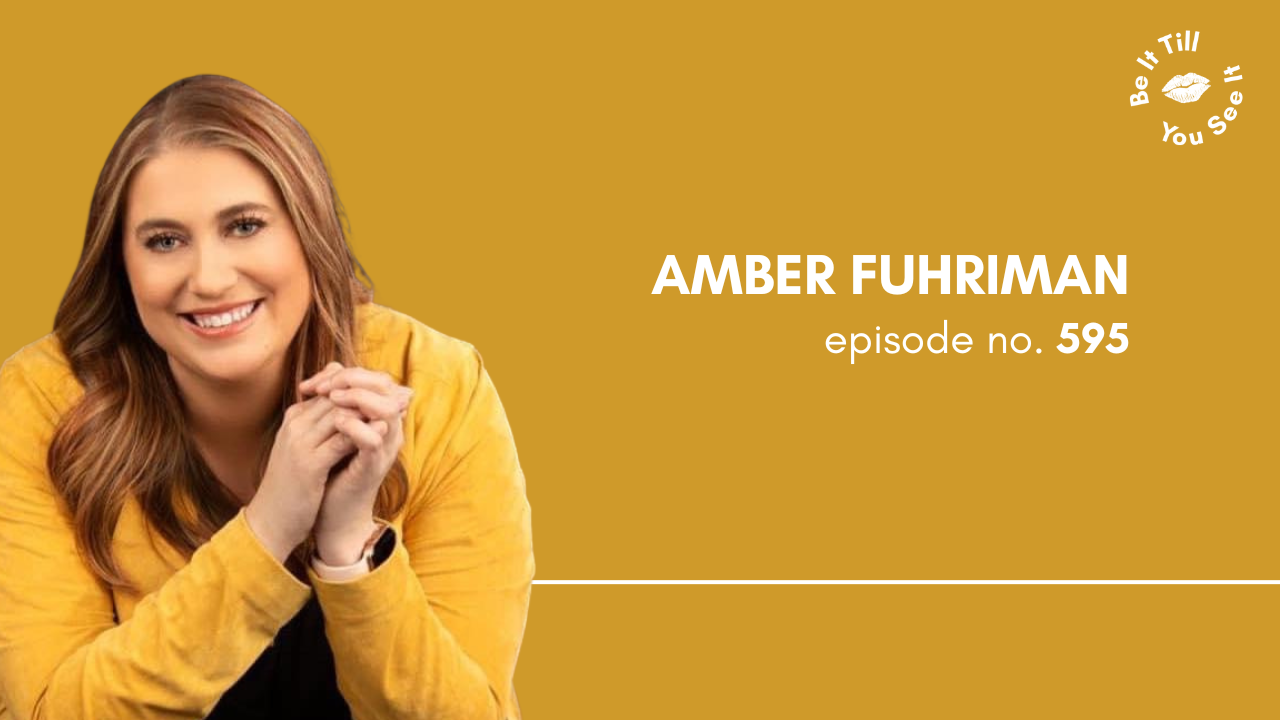
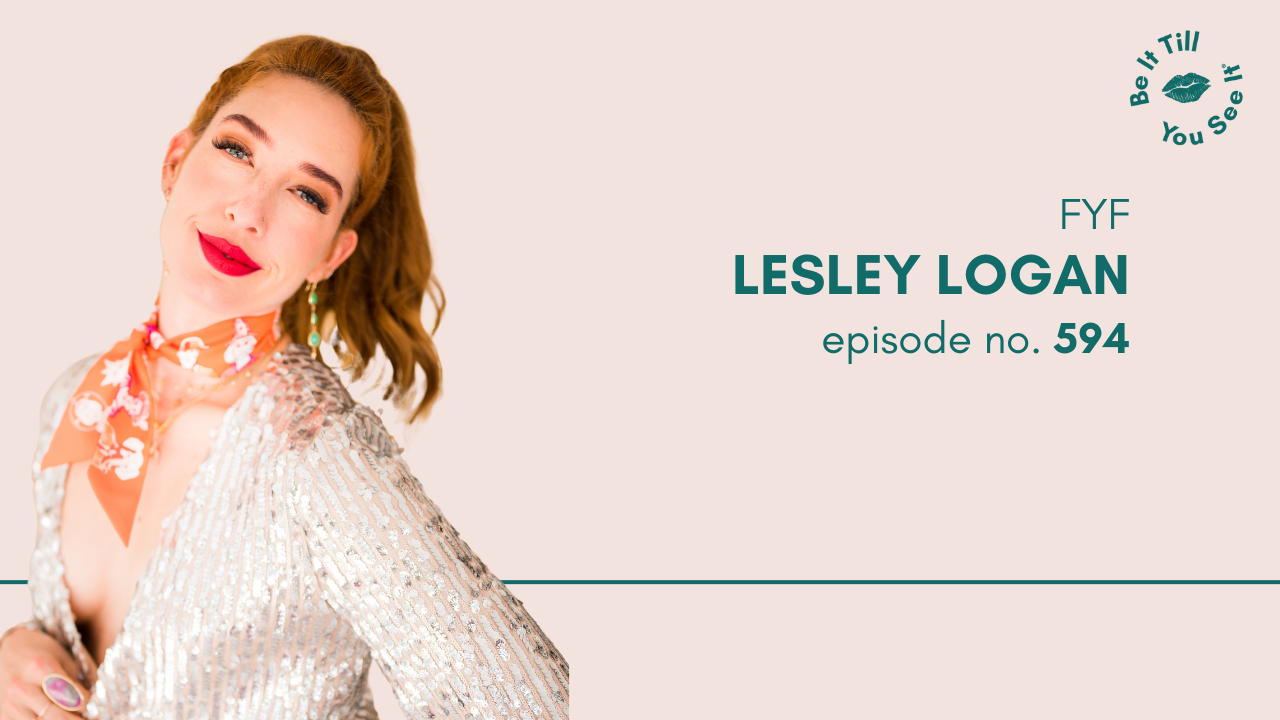
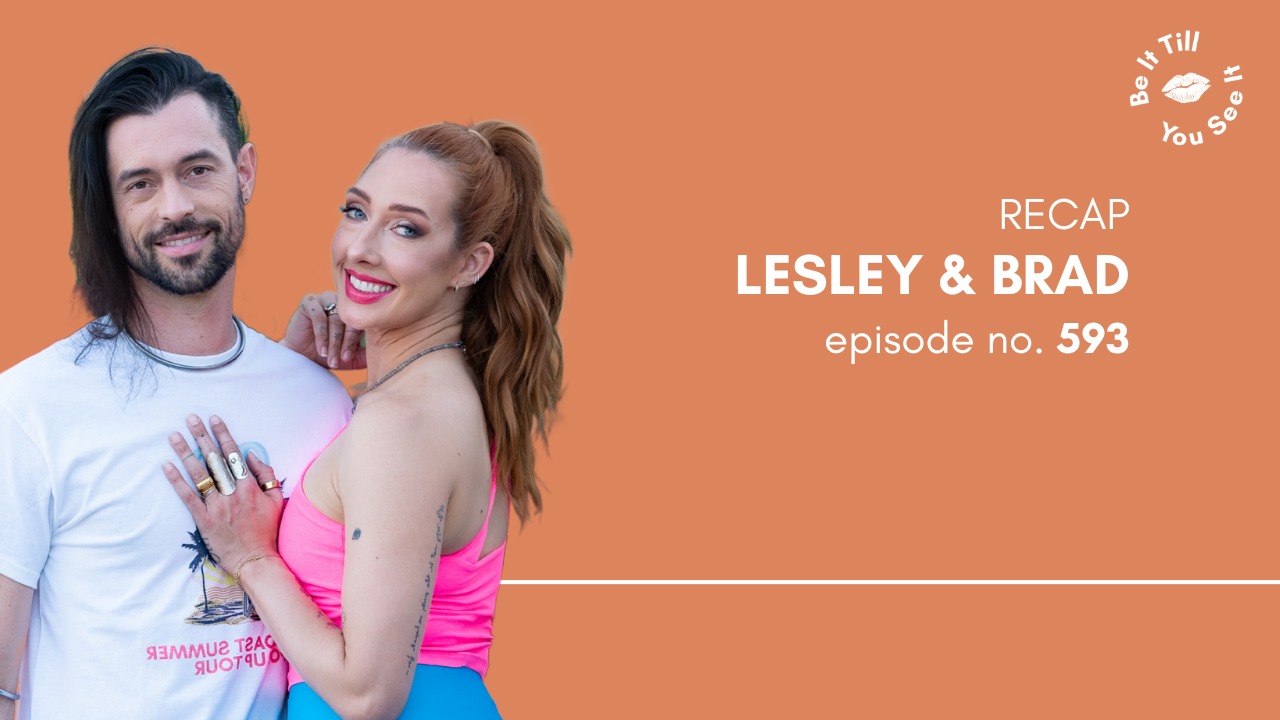
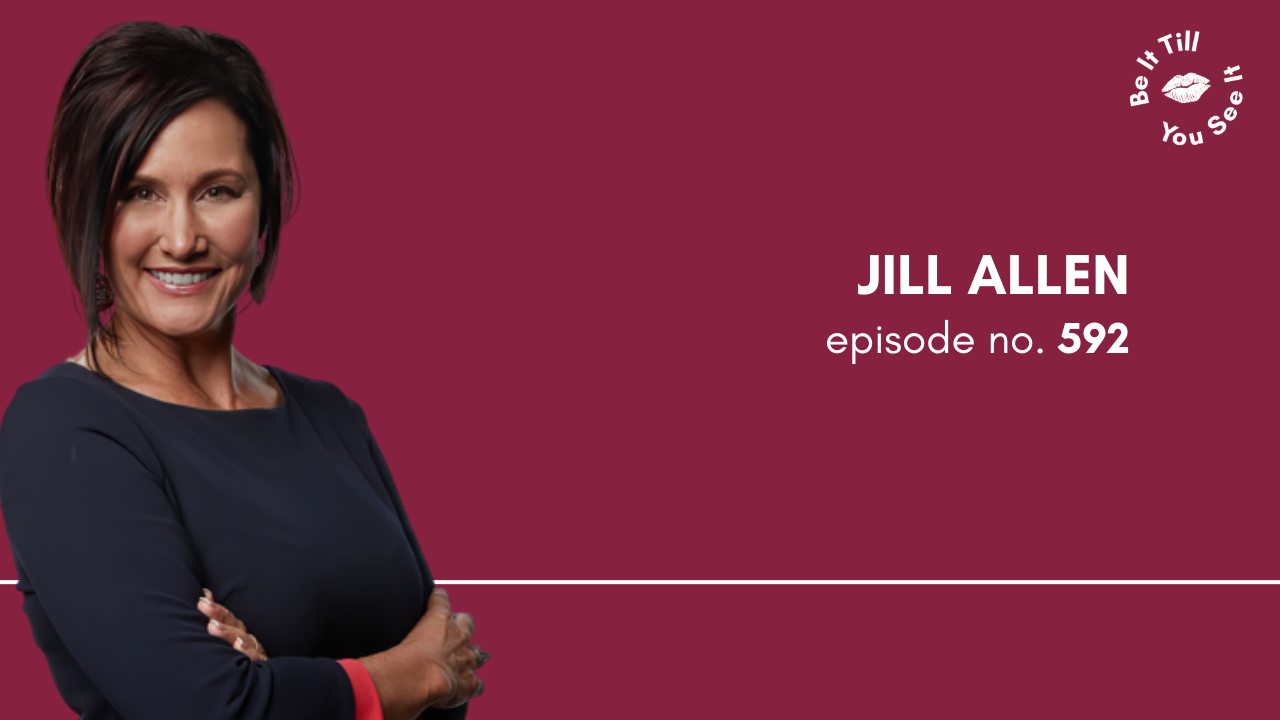
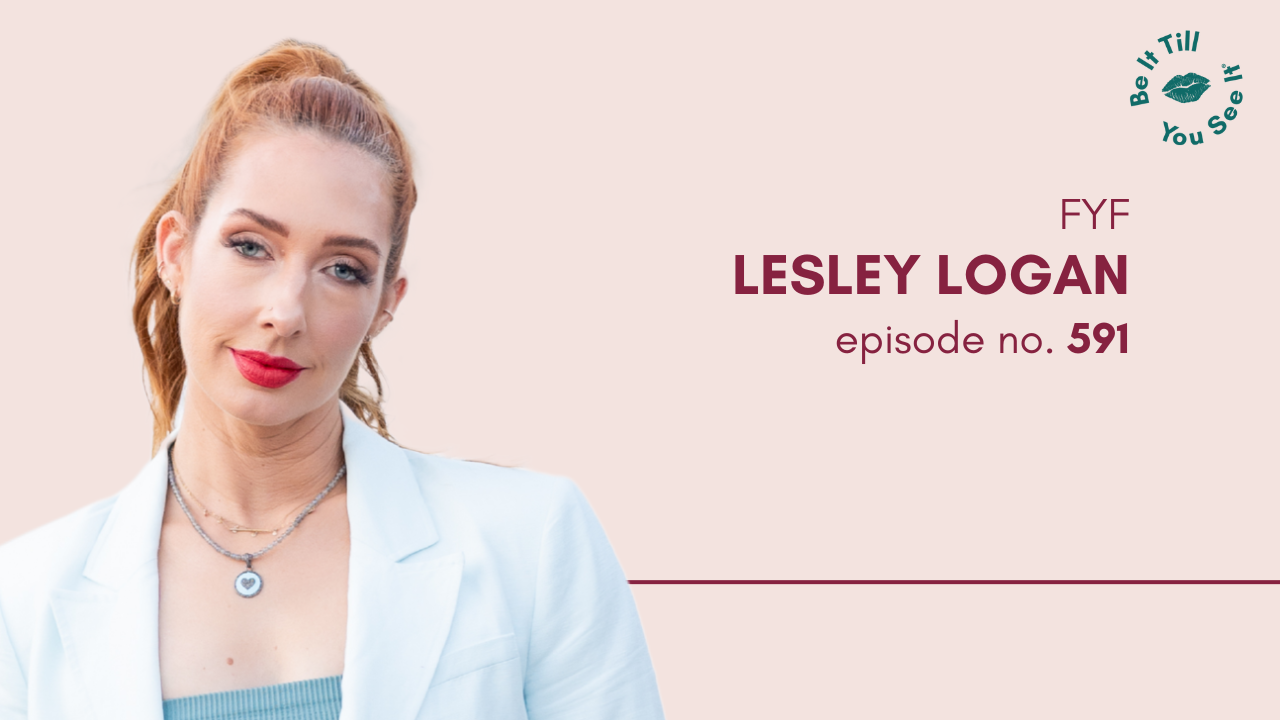
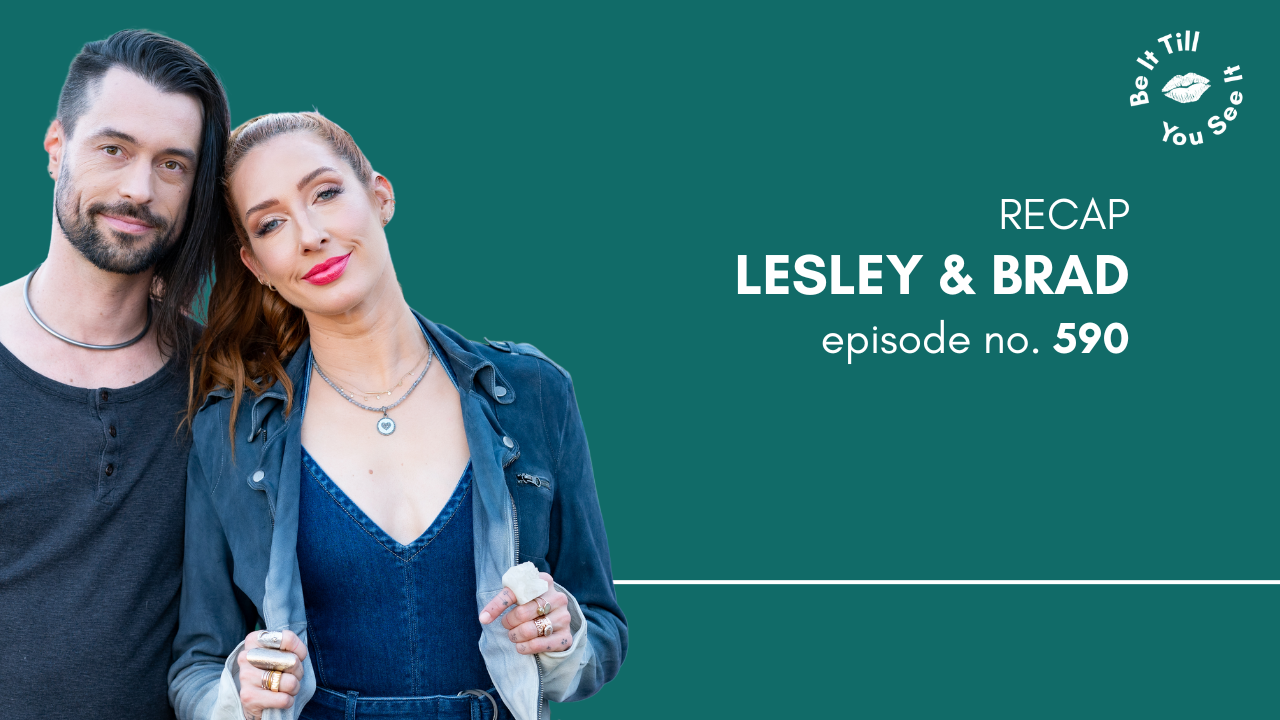
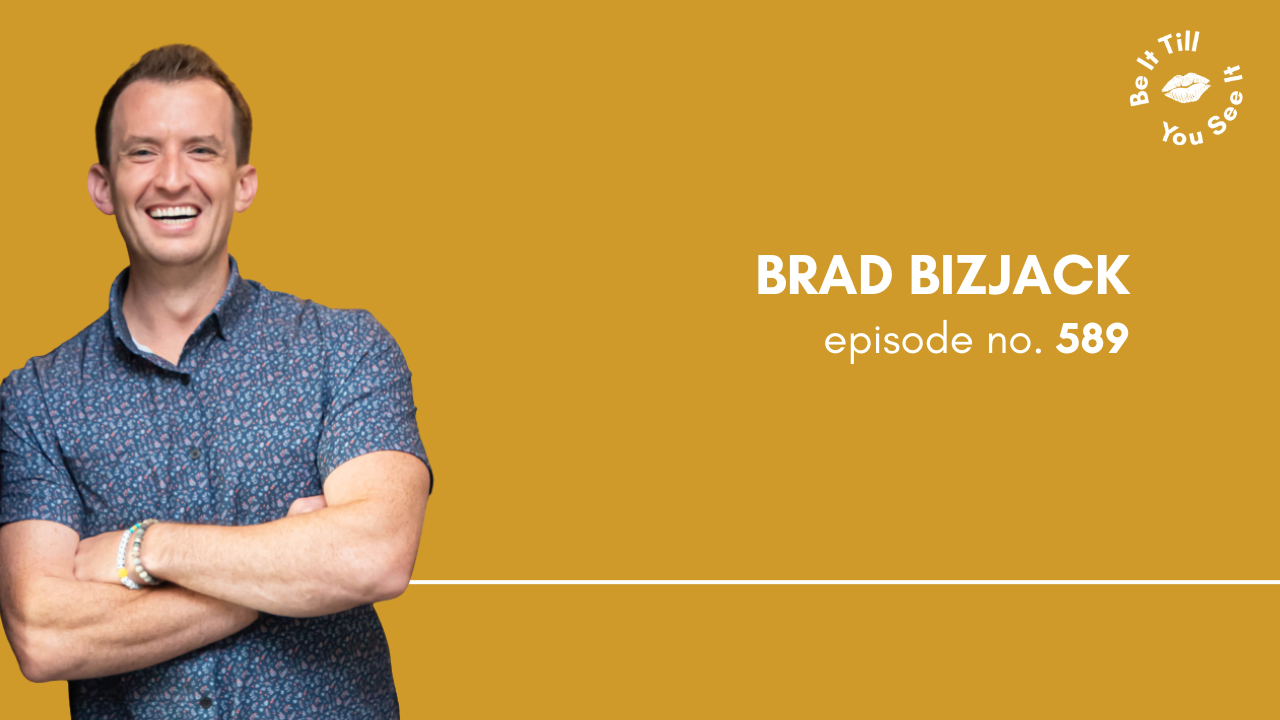
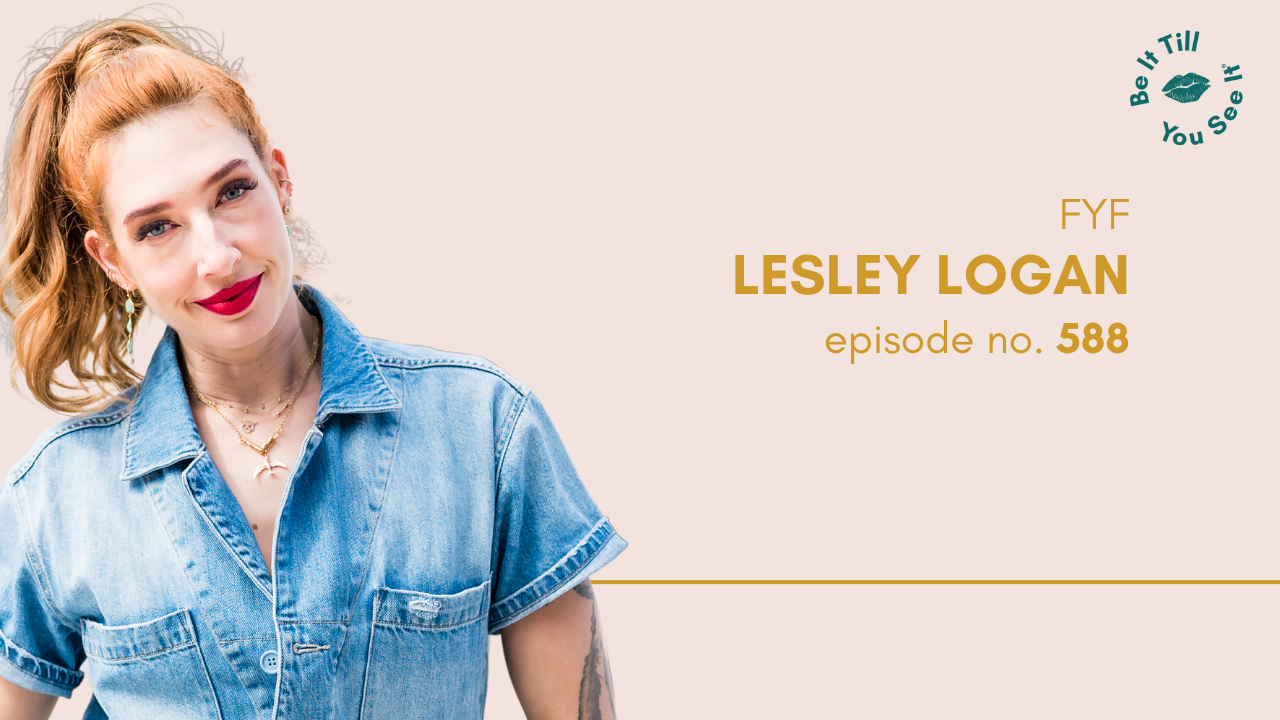
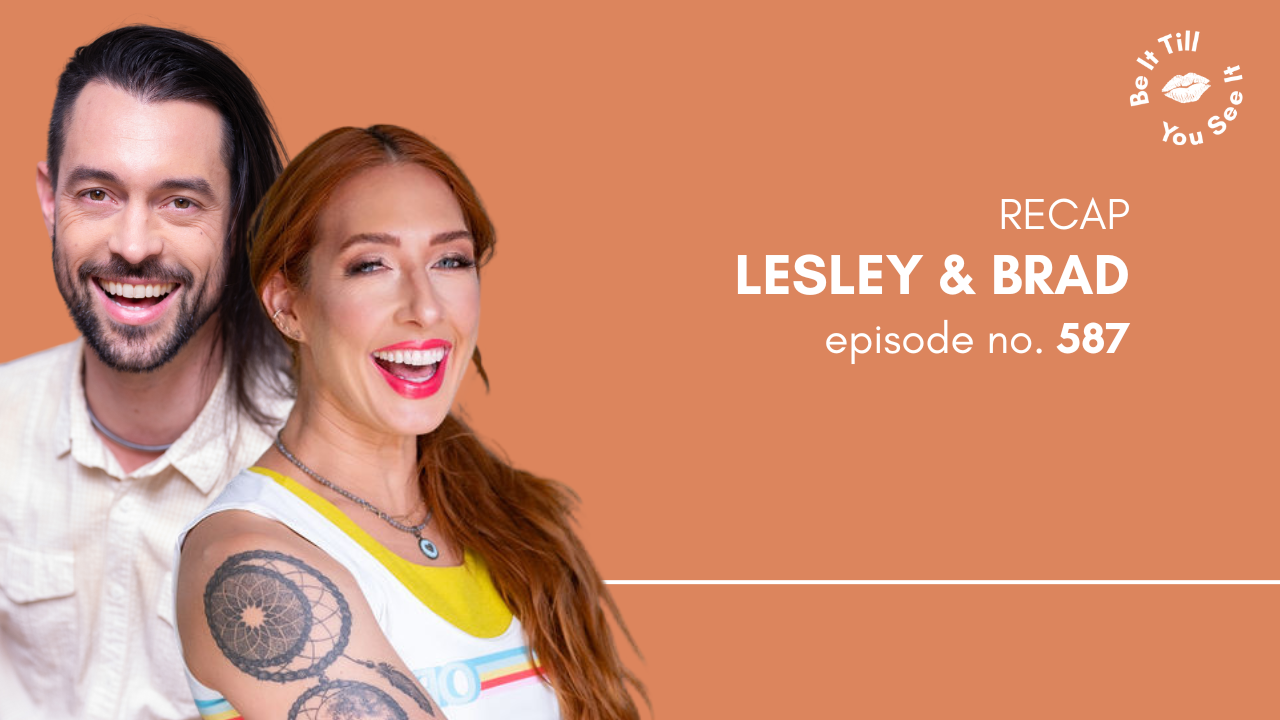
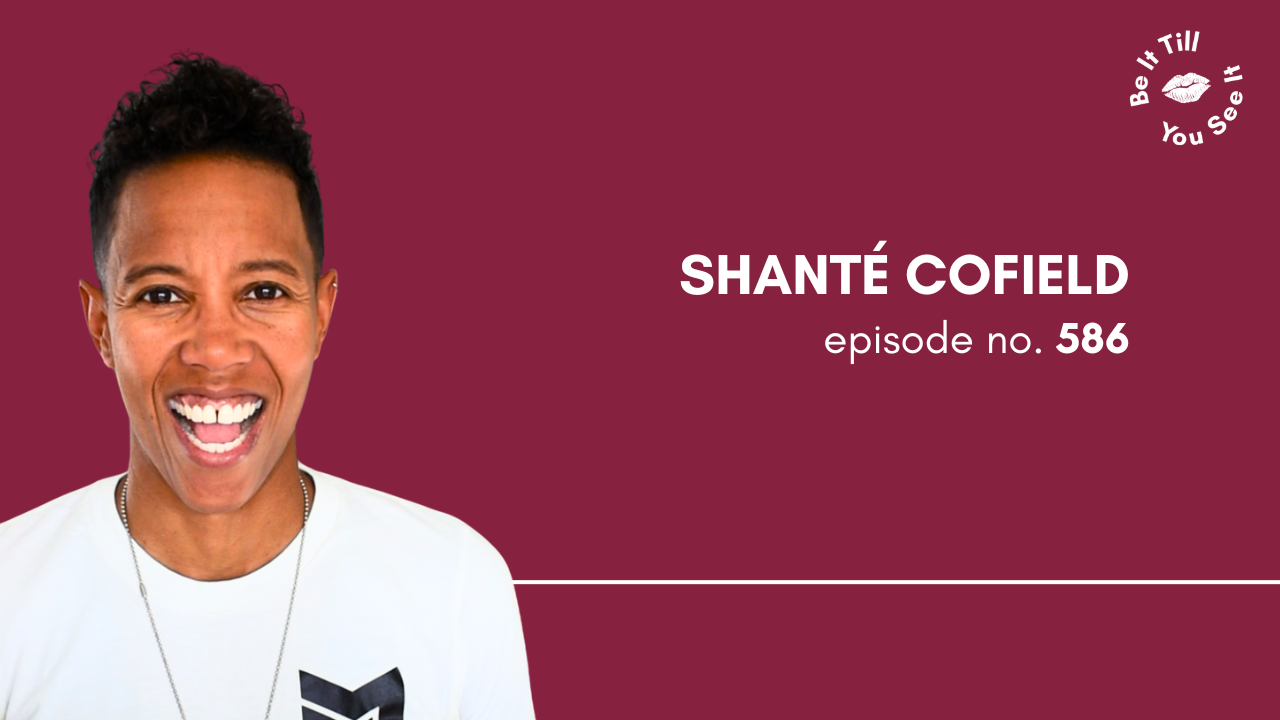
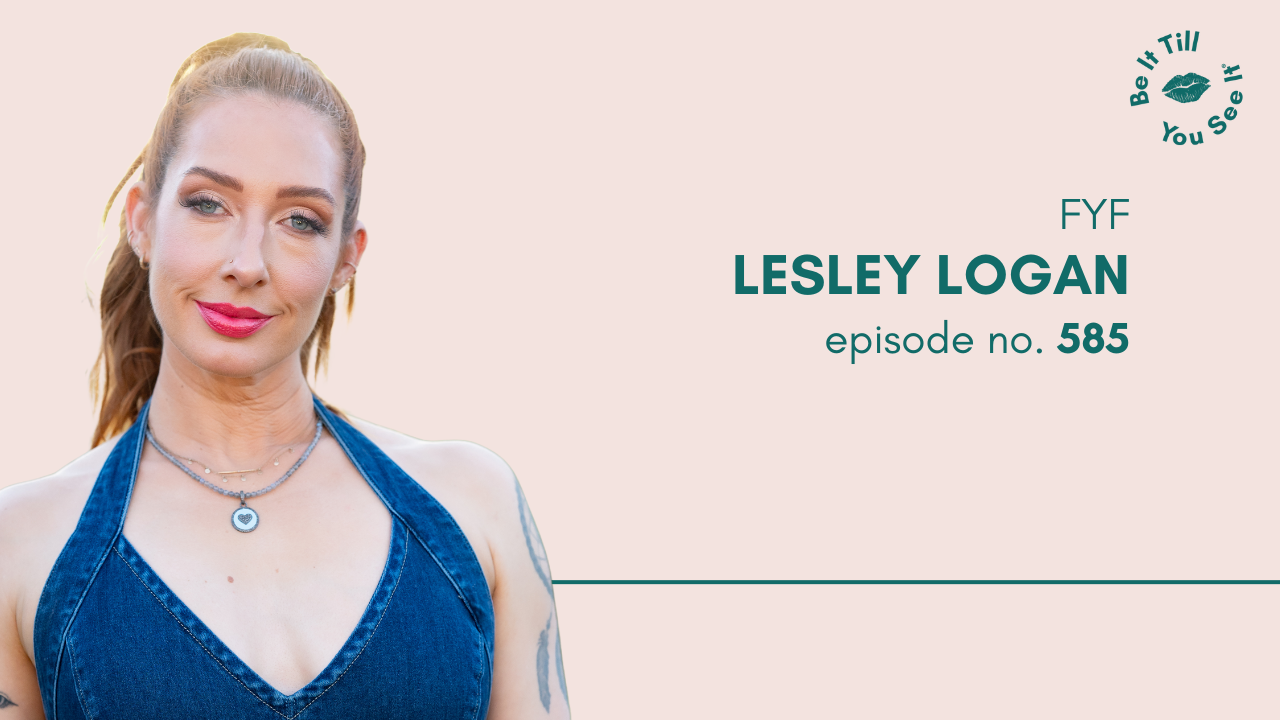
0 Comments